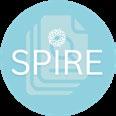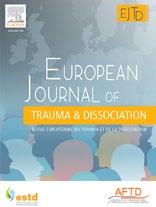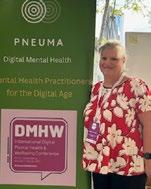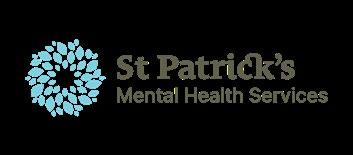




Welcome to the third Research Bulletin of 2025 from the Academic Institute at St Patrick’s Mental Health Services (SPMHS). As we move through the year, we continue to build momentum in our research outputs exploring new perspectives, sharing knowledge, and advancing understanding in mental health care.

Since our last Research Bulletin, we are delighted to report a record number of staff publications and conference presentations, the details of which are highlighted later in this issue. For readers wishing to access the full text of any of these articles, our online repository, SPIRE, provides a comprehensive and regularly updated catalogue of publications, organised by date of publication. We hope the contributions featured here will encourage reflection, dialogue, and collaboration, reinforcing the central role that research plays in shaping and advancing the delivery of our own service and mental health services in Ireland and beyond.
This edition also introduces a new feature, “From the archive”, which aims to showcase significant historical contributions preserved within SPIRE. Our inaugural selection revisits an address delivered in Dublin on 8 July 1931 by Dr Richard Leeper, then Superintendent of St Patrick’s
Hospital, reflecting on the progress of psychiatry at that time.
Alongside details of upcoming training and events, we include a Researcher Spotlight focus on staff member Debbie van Tonder. Debbie’s extensive research experience encompasses two MSc and current PhD studies.
Finally, we are pleased to celebrate the achievement of Ciara Ní Dhubhlaing, Head of Discipline of Pharmacy, who has been awarded the title of Adjunct Clinical Lecturer at the School of Pharmacy, University College Cork, an accomplishment that reflects both her expertise and the strength of our academic partnerships.


As always, the Academic Institute welcome any contact from staff planning a research project at SPMHS: gdonohue@stpatricks.ie
University College London courses
In the Autumn 2025 term, the Rapid Research Evaluation and Appraisal Lab (RREAL) at University College London will be offering six courses on rapid research and evaluation. If you are interested in attending click on this link.

The courses on offer are:
• Introduction to rapid research and evaluation: 12 September 2025: 10:00-13:00
• Introduction to rapid ethnography: 19 September 2025: 10:00-13:00
• Introduction to RREAL Sheets: 10 October 2025: 10:00-11:00
• Introduction to Big Qualitative Data methods: 17 October 2025: 10:00-12:00
• Intermediate Course on Big Qualitative Data methods: 7 November 2025: 10:00-12:00
• Scoping studies in rapid research and evaluation: 14 November 2025: 10:00-13:00
University College London is also commencing face-to-face and online workshops on specific qualitative methodologies and their applications in health research. These low-cost courses are for researchers at all levels of seniority, and in any area of health research who already have some basic understanding of qualitative research and wish to develop, refresh or expand their methodological skills and knowledge in specific areas. For further details click here.
UCL continues their free Qualitative Health Research Network seminar series with an upcoming presentation at 1pm on 16 October entitled: Implementingintegratedhealthcare: Lessonsfrom‘Primrose’–supportingpeoplewith severe mental illness to reduce cardiovascular risk. Sign up here.
Research ethics course for the public and patients now available on HSeLanD HSE Research and Development in partnership with the Irish Platform for Patient Organisations, Science and Industry, the National Office for Research Ethics Committees, academic and patient partners, have co-developed and launched a new online course. It is designed to equip the public, patients, researchers and staff with the knowledge and skills to contribute meaningfully to ethical review processes, such as participating in Research Ethics Committees or supporting the ethical design of research studies.

Whether you want to join a Research Ethics Committee or simply learn more about research ethics, this course is a great starting point. For more information click here and to access the course register as a volunteer at HSeLanD.
Funding opportunities Government of Ireland Programmes Advanced Notice The Government of Ireland Postgraduate Scholarship Programme and the Government of Ireland Postdoctoral Fellowship Programme calls will open on 11 September 2025.




If any member of staff is commencing or currently conducting a PhD and would like to join our bi-monthly online meeting group, please get in touch with Gráinne at gdonohue@stpatricks.ie. The next meeting is online on 23 September at 10.30am.


Call for papers for special issue in Psychotherapy
Measurement-based care (MBC) has emerged as an evidence-based practice that improves client outcomes and serves as a lynchpin for practiceoriented research. The goal of this special issue is to highlight recent advances, as well as diverse applications and extensions of MBC, which mark its rapid maturation and future promise for advancing more effective and patient-centered clinical practice. Please review the information on the Psychotherapy website to learn about typical design and reporting expectations. The following is a non-exhaustive list of manuscript types and topics that would be considered a good fit for the issue:
• Novel applications and extensions of client-, therapist, and/or system-level measurementbased care data
• Advances in machine learning/artificial intelligence that enhance the nature, applicability, personalisation, and precision of monitoring and feedback
• Mixed-method research that demonstrates strategies for enhancing the clinical utility/ actionability of feedback (ie. evidence-based strategies for how to be responsive to a particular “not-on-track” patient)
• Innovative strategies for implementing measurement-based care tools and feedback mechanisms in routine clinical practice and training settings
• Predictors, moderators, and mediators of the effectiveness of MBC at the client, therapist, or systems levels.
Interested authors should submit an abstract of no more than 500 words by 1 December.
Psychology Team visit with Professor Mark Shevlin from the University of Ulster
Professor Shevlin is a Professor of Psychological Research Methods and Statistics, and an international expert in psychological development. His research has significantly influenced global understanding of trauma, contributing to the World Health Organisation’s 2018 recognition of Complex PTSD as a formal diagnosis in the ICD-11. He is also a leading member of the Trauma Consortium.
Currently, Professor Shevlin is collaborating with Lizzy O’Brien, a SPMHS Psychologist in Clinical Training at UCD, and Professor Gary O’Reilly, Director of the UCD Clinical Psychology Programme, to develop the first questionnaire designed to assess Compassion-Focused Therapy for Eating Disorders. He is pictured here with Lizzy and members of the psychology team on his recent visit to SPMHS.




• Outcomes of virtual versus physical psychiatric admissions: A retrospective cohort study. Available here.
• Association between concomitant anticonvulsants and clinical and cognitive outcomes of electroconvulsive therapy for depression. Available here
• ‘You’re obviously not trying hard enough’: A qualitative exploration of the construct of overcontrol. Available here.
• Realist research in nursing: an introduction to seeing beyond ‘what works’. Available here.
• Why is electroconvulsive therapy for depression more effective in older age? A causal mediation analysis. Available here
• Expression of concern re: Shi, Z.-M. et al. Intravenous ketamine versus electroconvulsive therapy for major depressive disorder or bipolar depression: A meta-analysis of randomized controlled trials. Available here.
• Parents plus systemic, solution-focused parent training programs: An updated systematic review and meta-analysis. Available here.
• “It’s impacted on everything. It’s impacted on my work, it’s impacted on relationships, it’s impacted on everything I have done” said a significant other: A qualitative exploration of the experience of significant others who provide support to individuals attending intervention for complex trauma. Available here.
Mental Health Innovation and Improvement Seminar Series
Dr Ita Fitzgerald: Glucagon-like-peptide-1 (GLP1) receptor agonists in managing antipsychoticinduced-weight-gain-prevention or treatment.
Irish Hospital Consultations Association Mental Health Symposium
Dr Sarah O’Dwyer: The Future of Psychiatry - Respecting Rights, Balancing Risk, Treating Illness
International Society for Emotion-Focused Therapy 2025 Conference
Dylan Moore and Dr James McElvaney: Emerging Trends in EFT Group Therapy.
Trinity Research in Childhood Centre PhD Symposium
Debbie van Tonder, Prof Anne-Marie Brady, Dr Gráinne Donohue: Evaluating the effectiveness of an adolescent virtual mental health ward in a not-for-profit, independent national mental health service in the Republic of Ireland. A concurrent mixed method study.
British Psychological Society Faculty of the Psychology of Older People conference
Dr Karen Looney, Dr Emer Long and Aisling Gleeson: Barriers and facilitators to older adults accessing psychological therapies: a systematic review
Dr Aideen O’ Neil, Dr Eimer Crowe: “I learned I am not alone”: A pilot psychosocial group intervention supporting older adults recently diagnosed with Mild Cognitive Impairment
The Role of Art Therapy in Affecting Personal and Social Transformation, London, July 25
Jacqueline Toal: Panel | Piecing/peacing together: Trauma informed art psychotherapy in Northern Ireland
Title: “It’s impacted on everything. It’s impacted on my work, it’s impacted on relationships, it’s impacted on everything I have done” said a significant other: A qualitative exploration of the experience of significant others who provide support to individuals attending intervention for complex trauma
Authors: Emma Maloney, Clodagh
Dowling, Tara Deehan, Niamh Willis, Gary O’Reilly
Background: Few studies have sought to explore the experience of providing informal support to an adult with a complex trauma history. Moreover, the authors are unaware of any studies that explore the role of supporters of adults attending a phasedbased intervention for Complex Post Traumatic Stress Disorder. Knowledge of the roles supporters embody, the impact, and the effect that this may have on the relationship between the supported and the supporter could be used to inform the development of future interventions and the adaptation.
Study design and setting: This study adopted a qualitative design, using reflexive thematic analysis underpinned by a social constructionist perspective. Eleven attendees of an established triphasic complex trauma intervention and nine nominated significant others completed semistructured interviews post-intervention (N = 20). The three phases of the intervention were: (1) safety, stabilisation, and connection; (2) remembering and telling your story; and (3) looking forward, reclaiming your life, and reconnecting in relationships.
Results: Four overarching themes created were: (1) Support as multifaceted and integral (2) The emotional impact and systemic strain of supporting
(3) Intervention-associated shifts (4) The need for systemic support from services.
The data indicated that significant others experience distress and exert considerable effort to support those managing trauma symptoms. The intervention was suggested to facilitate
behavioural, emotional, and relational changes. Participants reported that a lack of available information for supporters unintentionally placed those attending intervention in an educator role. The inclusion of significant others in the intervention was proposed as a means of alleviating strain on both the individual and the support system.
Why is this important?


The results of this qualitative study highlighted the dedicated and considerable efforts of significant others as they support loved ones to manage trauma symptoms. The challenges of embodying supportive roles with limited information, guidance, and acknowledgement were outlined. Incorporating significant others into interventions for complex trauma was suggested as a potential means of alleviating the stress on individuals who have experienced trauma and their support networks.
Significant others who provide support to adults experiencing symptoms associated with complex trauma hold an important but challenging role that lacks support from services and is often underacknowledged. Greater but case-specific inclusion of supporters in intervention for complex trauma should be considered
Where can I find this article?
You can locate a summary of the article in SPIRE here or email emaloney@stpatricks.ie or gdonohue@stpatricks.ie for full version.
Some reflections on the progress of psychiatry: The Presidential address at the ninetieth annual meeting of the Royal MedicoPsychological Association held in Dublin, 8 July, 1931

The Journal of Medical Science, 1931. By
RICHARD R. LEEPER, F.R.C.S.I., M.P.C., Medical Superintendent, St Patrick’s Hospital, Dublin.
Context: Ireland in 1931 Dr Leeper tells us, was still patiently waiting for new legislation in the Irish Free State, particularly for a Mental Deficiency Bill that will make proper provision for the care and training of people requiring care. The Mental Deficiency Act of 1913 was not extended to Ireland, and Leeper claims that ‘we are still suffering from that injustice’.
The Presidential Address: Leeper begins this important address to the Royal Medico-Psychological Association highlighting the foundational role of the Association (established in 1841) in spearheading psychiatric training without which there would be ‘no diplomas in mental disease’, nor trained mental nurses in the British Isles, including Ireland. He recounts Dean Swift’s founding of St Patrick’s Hospital in 1745 and reflects on the inhumane treatments of that era, whilst also noting early misconceptions linking women’s mental health fluctuations to the lunar cycle or reproductive stages, a mystery persisting into his time.
Leeper laments the lack of psychiatric prominence in public discourse, despite critical contributions and expresses scepticism about simplistic genetic explanations for mental illness cautioning against eugenics as a social solution, emphasising public education and mental hygiene instead.
In comparing historical recovery rates, he informs us that in the decade 1910-19, the average Irish recoveryrate was approximately 39% lowering slightly to 38% in the proceeding decade, leading him to question
whether scientific psychiatry had truly advanced. Notably, he offers data (1921–1930) from St Patrick’s Hospital, stating a higher than national average recovery rate of 50%, 12% relieved, and a 6% death rate. He attributes this to an emphasis on the healing value of rest and therapeutic activities.
Later in his address, Leeper criticises the haphazard use of treatments from sedatives to physical intervention urging restraint, correct timing, and individualised care.
Despite his criticisms, Leeper is optimistic about the future of psychiatry. He admires younger clinicians and hopes emerging research in biochemistry could radically enhance psychiatric care. He also calls for new mental health legislation in Ireland—highlighting the need for mental deficiency legislation, outpatient services, and psychiatric departments in general hospitals to improve early intervention.
He closes his address with a note of hospitality to visiting members and a compassionate reminder of psychiatry’s humanitarian mandate. Using the words of poet Longfellow, he quotes: ‘The poor in body and estate, The sick and the disconsolate, Must not on man’s convenience wait.’
Click here to read the full address.
Note on the author: Dr Richard R Leeper was appointed Medical Superintendent of St Patrick’s Hospital in 1899. His appointment is widely credited with initiating a transformative era in the hospital’s operations and patient care philosophy. One of his most significant reforms was the abolition of physical restraints, liberating patients from mechanical confinement and aligning with broader 19th-century moral treatment movements. This was a notable shift away from the Old Asylum model toward a more dignified form of care. He oversaw the segregation of male and female wards, improving privacy and social dynamics. Crucially, he also introduced modern facilities such as bathrooms and day rooms and helped create a more therapeutic environment.

Debbie van Tonder, Programme Manager: Dean Clinics and Adolescent Service
Can you tell us about your research career to date?
My area of special interest is implementation science in mental health care. I am curious to explore and evaluate how new innovations or models of care are introduced and embedded in practice. I’ve been involved in several projects aimed at showing clinical outcomes in natural environments and presented these with my colleagues at conferences.


Working with the Anxiety Disorders programme team provided ample opportunities to integrate evidence-based practice effectively in SPMHS and improving service user outcomes. We presented a poster on individual care planning on the Anxiety Disorders programme at the Mental Health Commission conference in 2012 (van Tonder, D., Ryan, M., Moran, J., McDonough, M., (2012)). Another poster by the Anxiety Disorders programme team on Obsessional Slowness at Founders Day the same year won the prize for best poster (van Tonder, D., Ryan, M., Moran, J., McDonough, M., (2012)). I proceeded to do a MSc in Cognitive Therapy with my thesis: “Transdiagnostic or Disorder Specific Group CBT: The case of OCD” a retrospective cohort study.
Working as a programme manager further sparked my interest in implementation science as I experience first hand the challenges of translating evidence into practice. My thesis for my MSc in Healthcare Management was a change management project on the implementation of the independent advocacy service in WGAU. I presented a poster at the TCD conference in 2021 and won best poster award (van Tonder, D., (2021) “Helping You Help Yourself” Youth Advocacy in an Adolescent Mental Health Unit, Trinity Health and Education International Research Conference (THEconf2021), Dublin).
My lifelong dream was to do a PhD and I am currently a third year PhD candidate in the TCD School of Nursing and Midwifery. My research is a mixed method study that focus on evaluating the effectiveness of the WGAU Homecare service with the aim to strengthening the evidence base to guide future service design and implementation. I presented “We Hear You – The value of PPI in the early stages of research on the WGAU virtual ward” at the SPMHS Nursing Symposium in 2024. The next presentation was at the TCD Nursing Conference in 2025 where I presented
the findings of a scoping review in a talk named “Virtual Mental Health Wards: Clinical Models – a Scoping Review”. The most daunting was presenting “The Implementation of an Adolescent Virtual Mental Health Ward: An innovative solution to meet service needs”, at the Digital Mental Health and Wellbeing conference in Spain in May 2025. The PhD journey has been a steep learning curve but it’s a privilege that I deeply appreciate.
What are you currently working on?
As mentioned, I am in my third year of a part-time PhD. I am preparing for my confirmation in November 2025 and will start data collection by the end of the year.
Another project close to my heart is the Physical Health Monitoring service that commenced in 2024. This project has gone from strength to strength and is another example of implementing evidence base practice in the real-world. I, with co-authors Catherine Moloney, Tom Maher, and Dr Gráinne Donohue, are engaged in a descriptive paper on the development and implementation of the inpatient physical health monitoring service. This paper was peer-reviewed and accepted for publication by the British Journal of Mental HealthNursing and we are eagerly awaiting the publication. This physical health monitoring project is an ongoing project and I am especially interested in assessing the effectiveness and identifying factors that influence successful implementation.

What do you see as a priority for mental health research in the next five years?
I believe more research should be done on increasing accessibility to mental health care nationally and in SPMHS by exploring how virtual and telemental health can be developed and resourced to serve more people in Ireland. My priority for mental health research is to encourage nursing staff to take part in research, showcase the valuable work they do and to realise that they too can contribute to the evidence-base on what works, for whom and under what circumstances.
Any tips for SPMHS staff wishing to engage in research projects?
Start by having a clear understanding of what your research question is. Collaborate with your line manager and make sure that the study is something that will add value to SPMHS. Make sure you understand research methods, and the research process. Understanding the ethical approval process and data protection guidelines are vital and without approval from the DPO and Research Ethics Committee you cannot do research at SPMHS. Download the REC application form to get an idea of what is required. Don’t be afraid to ask questions. Remember: If I can do it – you can do it.

